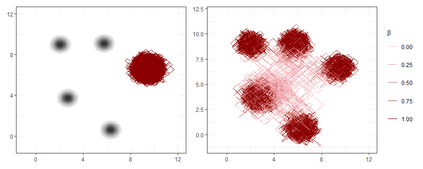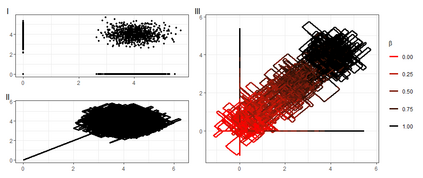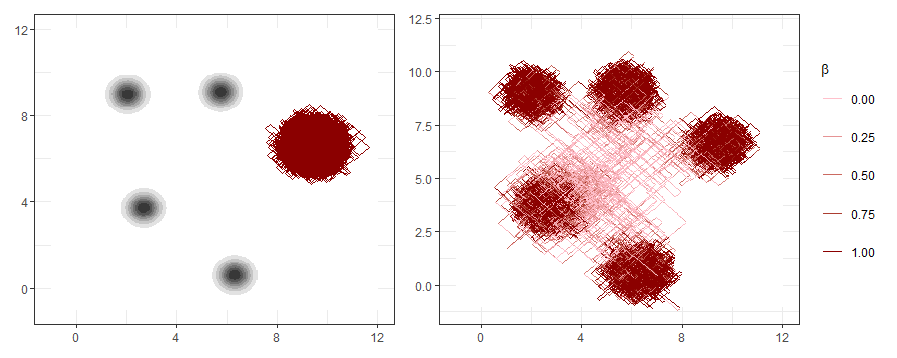New sampling algorithms based on simulating continuous-time stochastic processes called piece-wise deterministic Markov processes (PDMPs) have shown considerable promise. However, these methods can struggle to sample from multi-modal or heavy-tailed distributions. We show how tempering ideas can improve the mixing of PDMPs in such cases. We introduce an extended distribution defined over the state of the posterior distribution and an inverse temperature, which interpolates between a tractable distribution when the inverse temperature is 0 and the posterior when the inverse temperature is 1. The marginal distribution of the inverse temperature is a mixture of a continuous distribution on [0,1) and a point mass at 1: which means that we obtain samples when the inverse temperature is 1, and these are draws from the posterior, but sampling algorithms will also explore distributions at lower temperatures which will improve mixing. We show how PDMPs, and particularly the Zig-Zag sampler, can be implemented to sample from such an extended distribution. The resulting algorithm is easy to implement and we show empirically that it can outperform existing PDMP-based samplers on challenging multimodal posteriors.
翻译:基于模拟连续时间随机过程的新取样算法(称为Paphy Wid-deministic Markov 进程(PDMPs))已经显示出很大的希望。 但是,这些方法可以艰难地从多式或重型分布中采集样本。 我们展示了在这些情况下如何调制缓冲想法可以改善PDMP的混合。 我们引入了一种根据后表分布状态和反温定义的扩大分布的扩大分布范围,这种分布在反向温度为0和反向温度为1的后表之间,这种分布在可移动分布之间。 反向温度的边缘分布是[0]连续分布的混合体[1]和1:点质量的混合体,这意味着当反向温度为1时我们获得样本,这些样本是从外表提取的,但抽样算法也将探索在较低温度下分布的分布,从而改善混合。 我们展示了如何将PDMPs,特别是Zig-Zag采样器用于从这种扩展分布的采样中进行采样。 由此产生的算法很容易实施,并且我们从实验上显示它能够超越现有基于AFMDMPDMP的采样器。





